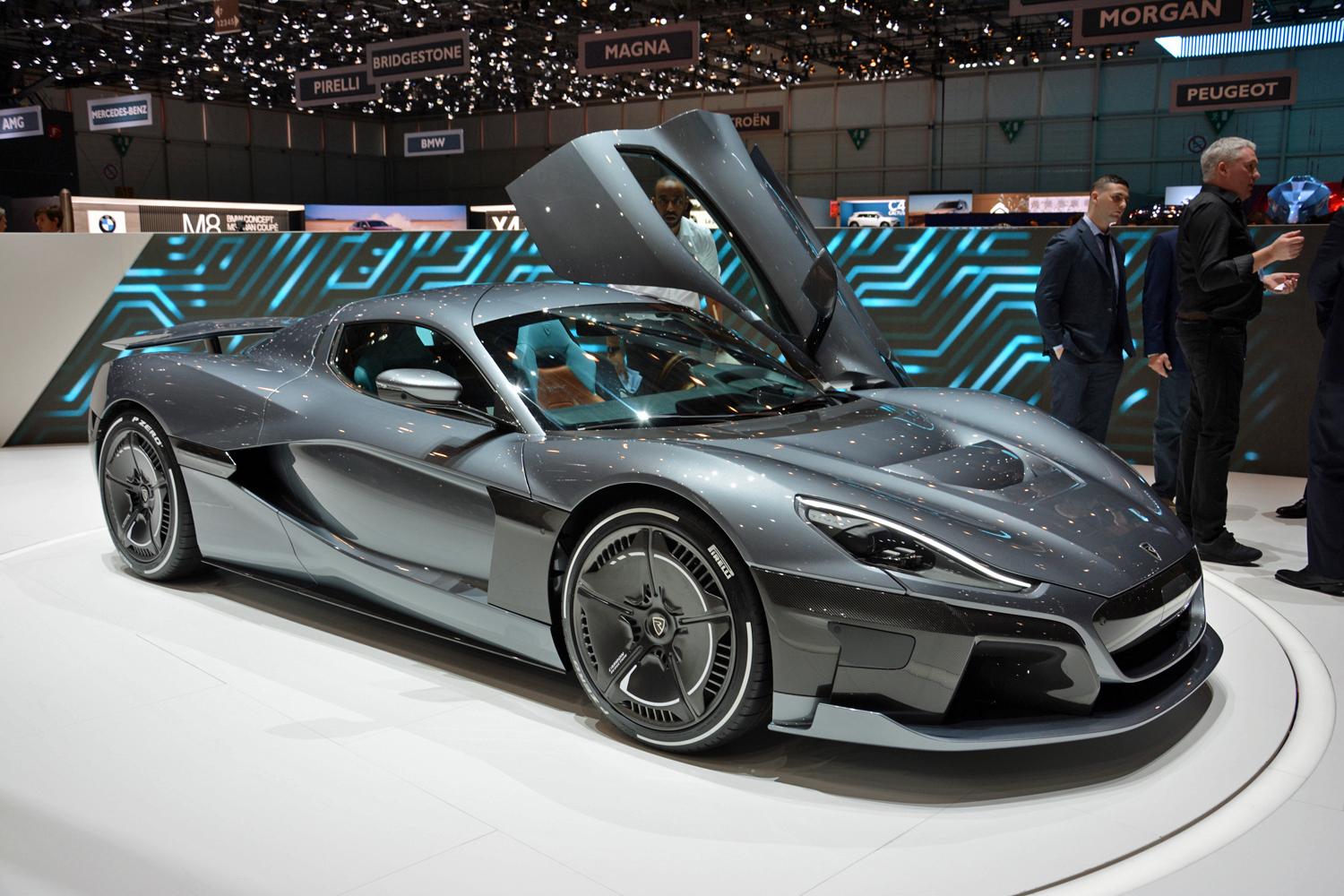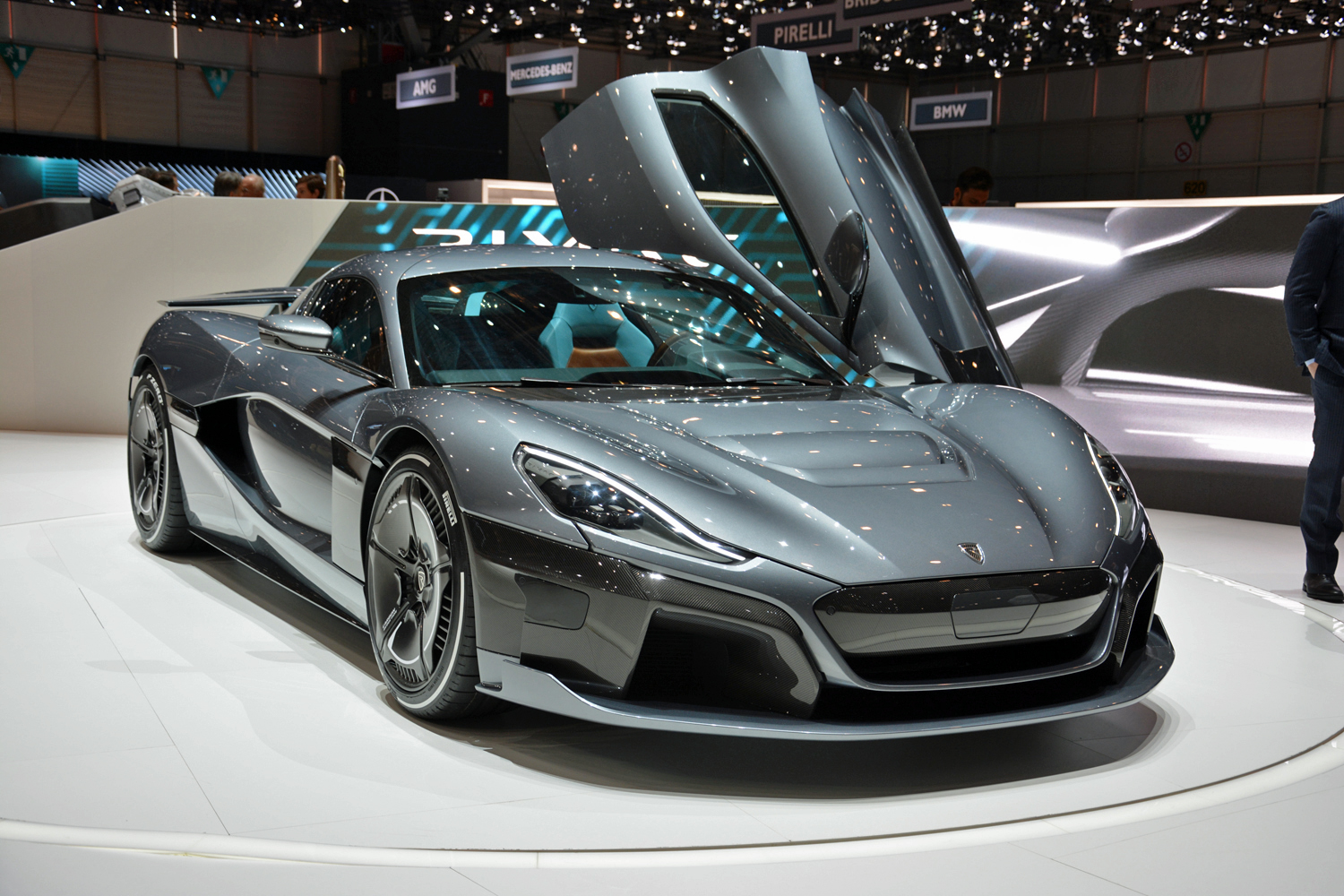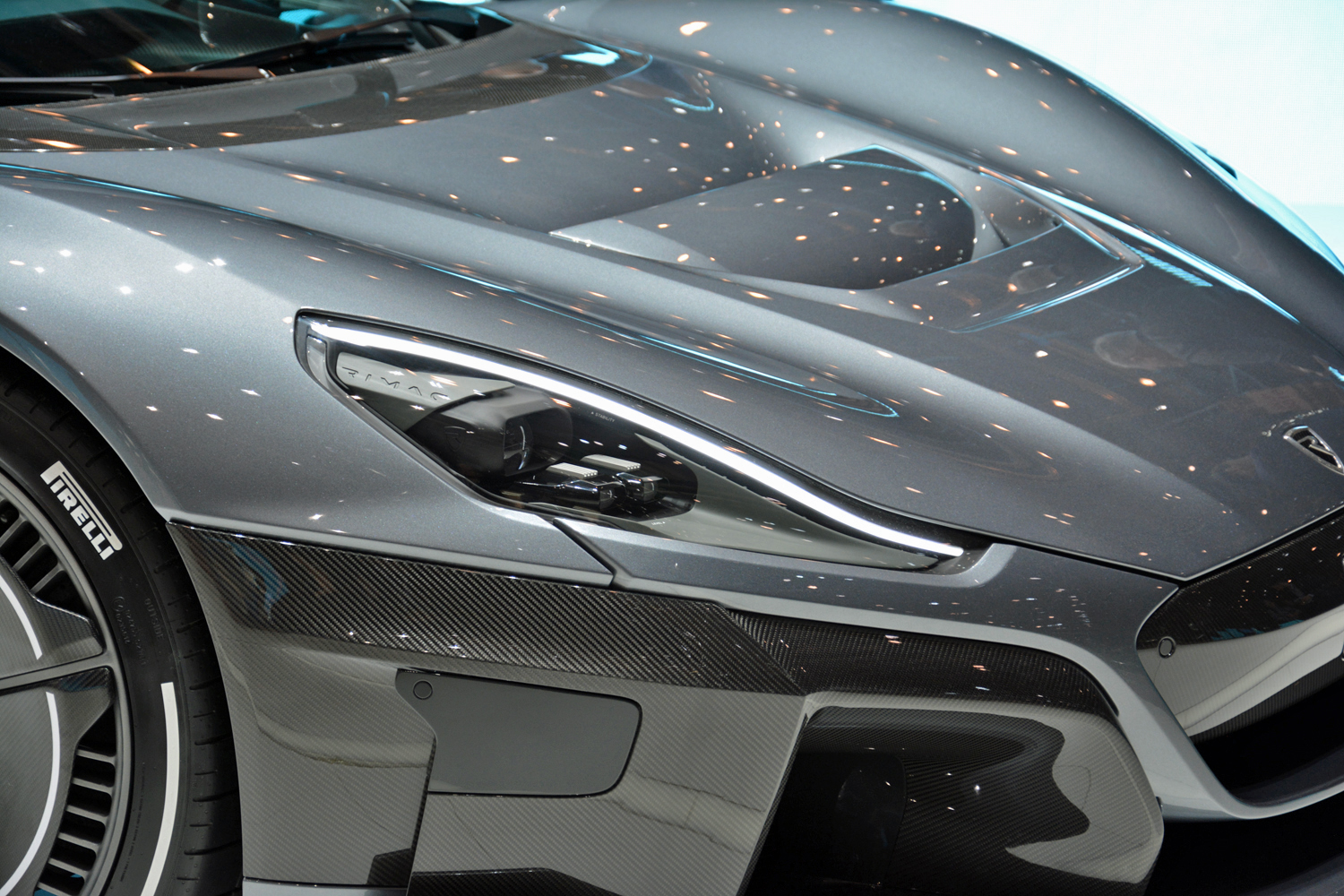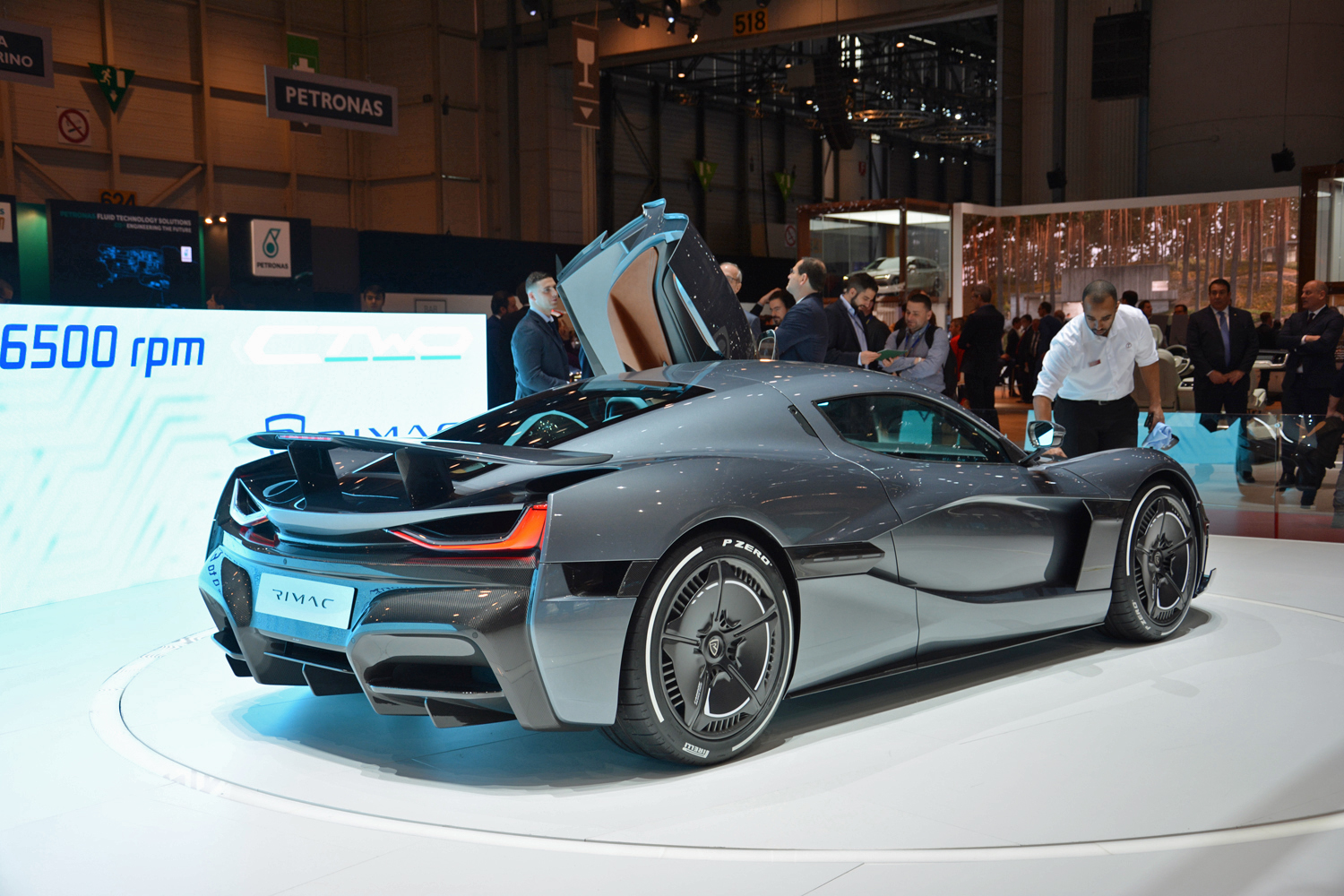Croatian startup Rimac made waves at the 2018 Geneva auto show when it unveiled the C Two concept, an electric hypercar powered by a 2,000-horsepower electric drivetrain. The jaw-dropping specifications sheet evidently caught the attention of Porsche — the German firm has purchased a 10 percent stake in Rimac.
“By developing the purely electric two-seater super sports cars, like the Concept One or the C Two, as well as core vehicle systems, Rimac has impressively demonstrated its credentials in the field of electromobility. We feel that Rimac’s ideas and approaches are extremely promising, which is why we hope to enter into close collaboration with the company in the form of a development partnership,” Porsche board member Lutz Meschke explained in a statement sent to Digital Trends.
Neither party disclosed the financial terms of the deal. There’s no word on exactly what comes next, either. We could see some of Porsche’s technology appear in future Rimac products, vice versa, or both. Company founder Mate Rimac tellingly pointed out the partnership represents an important step in his goal of becoming a component and system supplier, which indicates Porsche bought the 10 percent stake with technology transfer in mind, not simply to add a jewel to its crown.
Porsche is on the brink of introducing the Taycan, its first volume-produced electric car, but the sedan won’t compete in the same segment as Rimac’s upcoming C Two. The Taycan will fight for the Tesla Model S‘ turf; the C Two will compete at the top end of the hypercar spectrum as a rival to the second-generation Roadster Tesla announced in late 2017. On paper, it has more than what it takes to run alongside Elon Musk’s high-performance brainchild and even well-established speed machines like the Bugatti Chiron.
The C Two (pictured) has a top speed of 256 mph, a figure which — if verified — will earn the coupe the honor of being the world’s fastest production car. Rimac quotes a zero-to-60-mph time of 1.8 seconds and a 402-mile range when using the famously optimistic European testing cycle. And while it’s first and foremost a driver’s car, it’s also compatible with level four autonomy, meaning it can drive itself in a wide variety of conditions without requiring the slightest input from the driver.
It’s no surprise, then, that Porsche approached Rimac about a partnership. Enthusiasts have shown a strong interest in the burgeoning brand, too. The C Two’s 150-strong production run sold out just three weeks after the car’s Geneva unveiling in spite of a base price pegged in the vicinity of $2 million.
Editors' Recommendations
- Porsche’s most powerful production car is an EV
- It’s T time: Porsche builds 300-hp 718 Boxster, Cayman to take on twisty roads
- The Porsche Taycan is the first EV tuner Hennessey is putting its hands into
- This Porsche Taycan prototype was driven 2,128 miles in just 24 hours
- Hyundai invests $90M in Croatian startup Rimac to build an electric super-hatch










